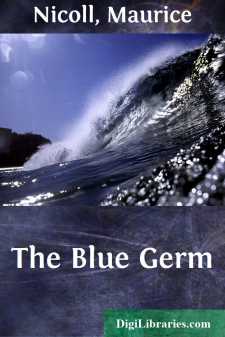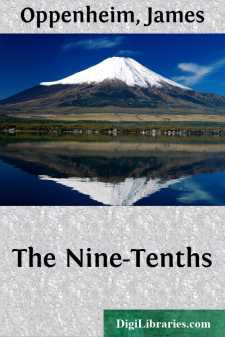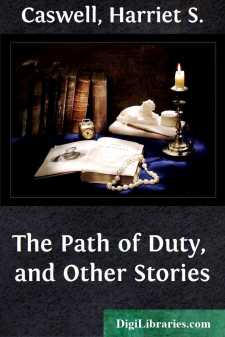Categories
- Antiques & Collectibles 13
- Architecture 36
- Art 48
- Bibles 22
- Biography & Autobiography 813
- Body, Mind & Spirit 142
- Business & Economics 28
- Children's Books 13
- Children's Fiction 10
- Computers 4
- Cooking 94
- Crafts & Hobbies 4
- Drama 346
- Education 46
- Family & Relationships 57
- Fiction 11828
- Games 19
- Gardening 17
- Health & Fitness 34
- History 1377
- House & Home 1
- Humor 147
- Juvenile Fiction 1873
- Juvenile Nonfiction 202
- Language Arts & Disciplines 88
- Law 16
- Literary Collections 686
- Literary Criticism 179
- Mathematics 13
- Medical 41
- Music 40
- Nature 179
- Non-Classifiable 1768
- Performing Arts 7
- Periodicals 1453
- Philosophy 64
- Photography 2
- Poetry 896
- Political Science 203
- Psychology 42
- Reference 154
- Religion 513
- Science 126
- Self-Help 84
- Social Science 81
- Sports & Recreation 34
- Study Aids 3
- Technology & Engineering 59
- Transportation 23
- Travel 463
- True Crime 29
Sort by:
by:
Unknown
PRESENT:Cranch, chief justice, Thruston and Morsell, justices. F. S. Key, district attorney, and J. M. Carlisle, for the prosecution. R. S. Coxe and J. H. Bradley, for the defence. John H. King, Nicholas Callan, James Kennedy, Walter Clarke, George Crandall, William Waters, Thomas Hyde, Thomas Fenwick, Samuel Lowe, George Simmes, Wesley Stevenson, and Jacob Gideon, jr., were empannelled and sworn...
more...
CHAPTER I GOOD-BY, BRIGHTON "Wanted: young men to enlist in Uncle Sam's submarine fleet for service in European waters." The magic words stood out in bold type from the newspaper that Jack Hammond held spread out over his knees. Underneath the caption ran a detailed statement setting forth the desire of the United States Government to recruit at once a great force of young Americans to man...
more...
by:
Thomas Mitchell
The exploration of Northern Australia, which formed the object of my first journey in 1831, has, consistently with the views I have always entertained on the subject [* See London Geographical Journal, vol. vii. part 2, p. 282.], been found equally essential in 1846 to the full development of the geographical resources of New South Wales. The same direction indicated on Mr. Arrowsmith's map,...
more...
by:
J. J. Grayson
Bob Martin stood outside the large red brick house and whistled. He whistled three notes, a long and two short, which meant to Hal Gregg inside that Bob wanted to see him, and to see him quickly. Something was up. At least, that was what it should have meant to Hal, but evidently it didnât, because no answering whistle came out to Bob, and no head appeared in any of the windows. Bob whistled...
more...
by:
Walter Pater
PREFACE Many attempts have been made by writers on art and poetry to define beauty in the abstract, to express it in the most general terms, to find a universal formula for it. The value of these attempts has most often been in the suggestive and penetrating things said by the way. Such discussions help us very little to enjoy what has been well done in art or poetry, to discriminate between what is...
more...
by:
Maurice Nicoll
BLACK MAGIC I had just finished breakfast, and deeply perplexed had risen from the table in order to get a box of matches to light a cigarette, when my black cat got between my feet and tripped me up. I fell forwards, making a clutch at the table-cloth. My forehead struck the corner of the fender and the last thing I remembered was a crash of falling crockery. Then all became darkness. My parlour-maid...
more...
by:
James Oppenheim
I THE PRINTERY That windy autumn noon the young girls of the hat factory darted out of the loft building and came running back with cans of coffee, and bags of candy, and packages of sandwiches and cakes. They frisked hilariously before the wind, with flying hair and sparkling eyes, and crowded into the narrow entrance with the grimy pressmen of the eighth floor. Over and over again the one frail...
more...
CHAPTER I. A SUDDEN BEREAVEMENT. "Awake, my dear child, awake!" These were the words I heard: I started up, gazing in a bewildered manner into the face of my mother, who had, with some difficulty, succeeded in arousing me from the sweet, healthful sleep of childhood. My mother drew nigh to me and whispered, "My dear Clara, your papa is dying." With a frightened cry, I threw my arms...
more...
by:
Various
WHY ARE NOT THE ENGLISH A MUSICAL PEOPLE? We cannot help it.—Massinger's Roman Actor. Astronomy, music, and architecture, are the floating topics of the day; on the second of these heads we have thrown together a few hints, which may, probably prove entertaining to our readers. The English are not—you know, reflective public—a musical people; this has been said over and over again in the...
more...
PREFACE. In preparing the present volume, the writer has been actuated by a conscientious desire to deepen and vivify our faith in the Christian system of truth, by showing that it does not rest solely on a special class of facts, but upon all the facts of nature and humanity; that its authority does not repose alone on the peculiar and supernatural events which transpired in Palestine, but also on the...
more...











